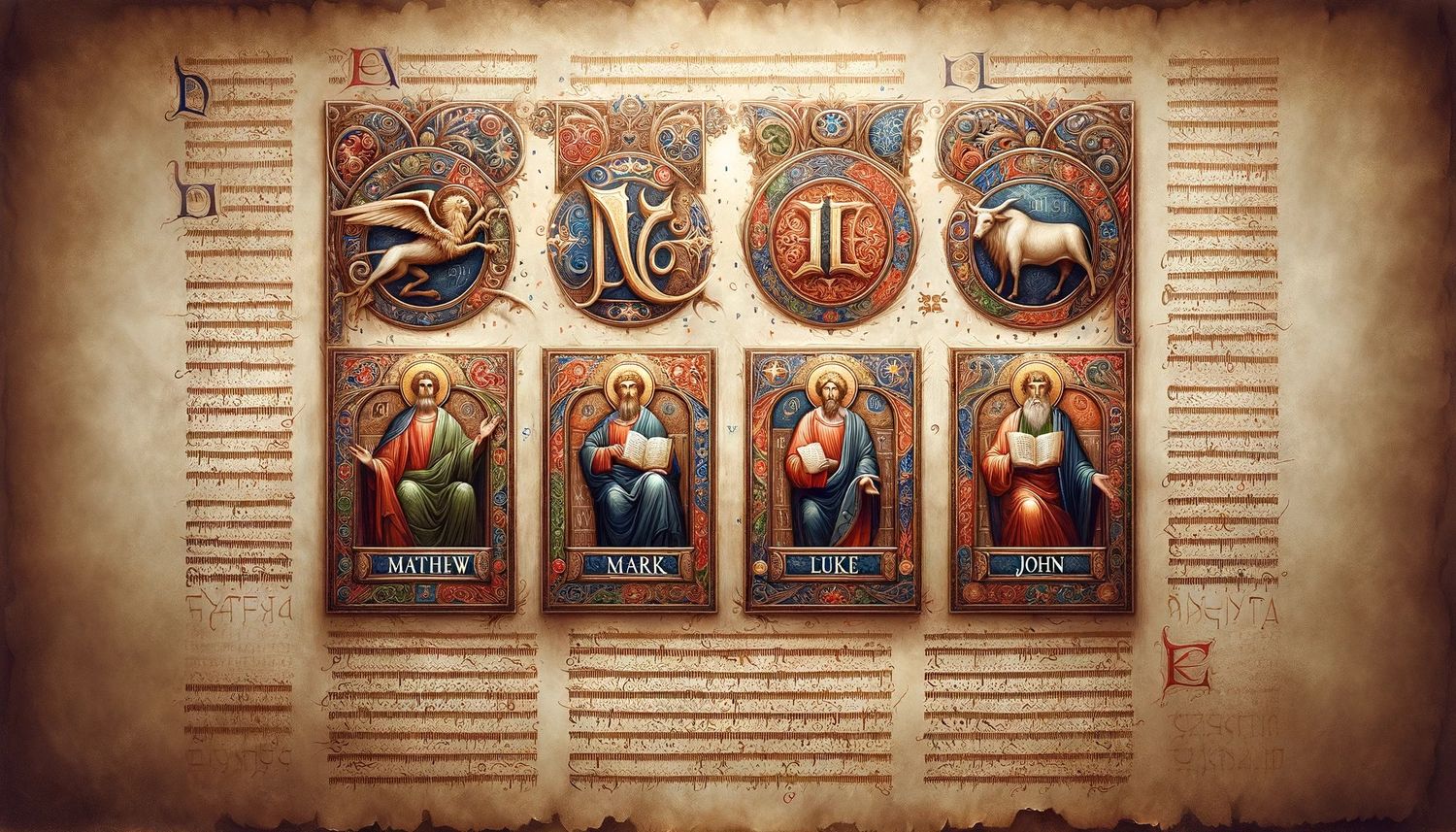Home>Theology and Spirituality>Augustine: How Many Sacraments


Theology and Spirituality
Augustine: How Many Sacraments
Published: February 10, 2024
Jason DeRose, Managing Editor at Christian.net, uses his expertise in religion and journalism to deepen understanding of faith's societal impacts. His editorial leadership, coupled with a strong academic background, enriches the platform’s diverse content, earning him recognition in both journalism and religious circles.
Explore Augustine's perspective on the sacraments and their significance in theology and spirituality. Uncover the depth of his teachings on this fundamental aspect of Christian faith.
(Many of the links in this article redirect to a specific reviewed product. Your purchase of these products through affiliate links helps to generate commission for Christian.net, at no extra cost. Learn more)
Table of Contents
Introduction
Augustine of Hippo, also known as Saint Augustine, was a prominent theologian and philosopher whose influential works continue to shape Christian thought and theology. Born in 354 AD in Roman Africa, Augustine's intellectual prowess and spiritual journey led him to become one of the most significant figures in the development of Christian doctrine.
Central to Augustine's theological contributions is his exploration of the sacraments within the Christian faith. Sacraments, as understood in Christian theology, are sacred rituals or ceremonies that are regarded as outward signs of inward grace, instituted by Christ and entrusted to the Church. These rituals hold profound spiritual significance for believers and are integral to the practice of the Christian faith.
In this article, we delve into Augustine's perspectives on the sacraments, examining his writings and teachings to gain insight into his understanding of these sacred rites. By exploring Augustine's views, we aim to uncover his stance on the number of sacraments within the Christian tradition and the theological implications of his beliefs.
As we embark on this exploration of Augustine's theology of the sacraments, we will journey through his writings and engage with his profound insights, seeking to grasp the essence of his teachings and their enduring relevance in Christian theology. Through this exploration, we can gain a deeper understanding of Augustine's theological legacy and the enduring impact of his contributions to the Christian faith.
Read more: How Many Sacraments In The Lutheran Church
Augustine's Views on Sacraments
Augustine's views on the sacraments are deeply rooted in his theological reflections and profound understanding of Christian doctrine. Central to his perspective is the belief that sacraments are sacred signs that convey spiritual truths and divine grace to believers. Augustine emphasized the sacraments as visible manifestations of God's invisible grace, serving as channels through which believers experience the presence and blessings of God.
In his writings, Augustine expounded on the sacraments as essential components of the Christian life, emphasizing their role in nurturing and sustaining the faith of believers. He underscored the significance of the sacraments in strengthening the spiritual bond between individuals and the divine, portraying them as transformative encounters with the divine presence. For Augustine, the sacraments were not merely symbolic rituals but profound encounters with the living God, imbued with profound spiritual significance.
Furthermore, Augustine's views on the sacraments were deeply intertwined with his understanding of the Church as the mystical body of Christ. He emphasized the communal aspect of the sacraments, highlighting their role in uniting believers as members of Christ's body. Augustine's theological insights underscored the sacraments as expressions of the Church's unity and the shared participation in the divine life, reinforcing the interconnectedness of believers within the Christian community.
Moreover, Augustine's reflections on the sacraments encompassed their role in initiating individuals into the Christian faith and nurturing their spiritual growth. He expounded on the sacraments of baptism and the Eucharist, emphasizing their transformative power in initiating believers into the Christian community and nourishing their spiritual journey. Augustine's writings illuminated the sacraments as pivotal moments in the believer's spiritual odyssey, marking significant milestones in their relationship with God and the Christian community.
In essence, Augustine's views on the sacraments reflect a profound theological understanding of these sacred rites as conduits of divine grace and transformative encounters with the living God. His insights continue to resonate within Christian theology, shaping the understanding of the sacraments as vital expressions of faith, communal unity, and spiritual nourishment for believers across generations.
The Sacraments in Augustine's Writings
In Augustine's extensive body of writings, the sacraments emerge as central themes that permeate his theological reflections and spiritual expositions. His profound exploration of the sacraments illuminates their significance within the Christian faith and their transformative impact on the lives of believers.
Throughout his works, Augustine expounds on the sacraments as sacred rites instituted by Christ and entrusted to the Church, serving as visible signs of God's invisible grace. He delves into the sacraments of baptism, confirmation, the Eucharist, reconciliation, anointing of the sick, marriage, and ordination, elucidating their profound spiritual implications for believers. Augustine's writings underscore the sacraments as pivotal moments in the believer's spiritual journey, marking significant encounters with the divine presence and channels of God's transformative grace.
In his treatises, Augustine emphasizes the sacraments as tangible expressions of God's redemptive work in the lives of believers, portraying them as sacred encounters with the living God. He elucidates the sacraments as means through which believers participate in the salvific acts of Christ, experiencing the profound reality of God's grace and mercy. Augustine's writings resonate with a deep sense of sacramental theology, portraying the sacraments as transformative encounters that imbue believers with the divine life and nurture their spiritual growth.
Furthermore, Augustine's reflections on the sacraments underscore their communal dimension within the life of the Church. He emphasizes the sacraments as unifying elements that bind believers together as members of Christ's mystical body, fostering a sense of communal participation in the divine life. Augustine's writings illuminate the sacraments as expressions of the Church's unity and the shared journey of believers in their pursuit of spiritual wholeness and divine communion.
In essence, Augustine's writings on the sacraments offer profound insights into their theological significance and spiritual impact. His exploration of the sacraments as visible signs of God's grace and transformative encounters with the divine continues to resonate within Christian theology, shaping the understanding of these sacred rites as essential components of the Christian faith and vital expressions of believers' spiritual journey.
The Number of Sacraments According to Augustine
Augustine's theological perspective on the number of sacraments within the Christian tradition has been a subject of scholarly inquiry and theological discourse. Central to Augustine's understanding of the sacraments is his profound reflection on the transformative nature of these sacred rites and their role in conveying divine grace to believers. While the delineation of the specific number of sacraments in Augustine's writings may not align precisely with later doctrinal formulations, his insights offer valuable perspectives on the sacramental life of the Church.
In Augustine's theological framework, the sacraments are imbued with profound spiritual significance, serving as visible signs of God's invisible grace and channels through which believers encounter the divine presence. His writings emphasize the sacraments as pivotal moments in the believer's spiritual journey, marking transformative encounters with the living God. Augustine's reflections on the sacraments encompass their role in initiating individuals into the Christian faith and nurturing their spiritual growth, underscoring their transformative power in fostering spiritual wholeness and divine communion.
While Augustine's specific enumeration of the sacraments may not align with later doctrinal developments, his theological insights shed light on the sacramental nature of the Church's life and the transformative impact of these sacred rites. Augustine's emphasis on the sacraments as visible signs of God's grace and channels of divine encounter underscores their profound significance within the Christian tradition.
Furthermore, Augustine's writings underscore the communal dimension of the sacraments within the life of the Church, emphasizing their role in uniting believers as members of Christ's mystical body. His theological reflections illuminate the sacraments as expressions of the Church's unity and the shared participation in the divine life, reinforcing the interconnectedness of believers within the Christian community.
In essence, while Augustine's specific enumeration of the sacraments may not align with later doctrinal formulations, his theological insights offer valuable perspectives on the sacramental life of the Church. His profound reflections on the transformative nature of the sacraments and their role in conveying divine grace continue to resonate within Christian theology, shaping the understanding of these sacred rites as essential components of the Christian faith and vital expressions of believers' spiritual journey.
Conclusion
In conclusion, Augustine's profound insights into the sacraments offer a rich tapestry of theological reflections that continue to resonate within Christian tradition. His emphasis on the sacraments as visible signs of God's invisible grace and transformative encounters with the divine underscores their enduring significance within the life of the Church. Augustine's theological legacy illuminates the sacraments as essential components of the Christian faith, serving as conduits of divine grace and expressions of believers' spiritual journey.
Throughout his writings, Augustine's exploration of the sacraments as sacred rites instituted by Christ and entrusted to the Church underscores their pivotal role in nurturing and sustaining the faith of believers. His theological reflections on the sacraments of baptism, the Eucharist, reconciliation, and others highlight their transformative power in initiating individuals into the Christian community and nurturing their spiritual growth. Augustine's profound understanding of the sacraments as channels of divine encounter and spiritual nourishment enriches the theological landscape, offering valuable insights into the sacramental life of the Church.
Furthermore, Augustine's emphasis on the communal dimension of the sacraments underscores their role in uniting believers as members of Christ's mystical body. His theological reflections illuminate the sacraments as expressions of the Church's unity and the shared participation in the divine life, reinforcing the interconnectedness of believers within the Christian community. Augustine's theological legacy continues to inspire a deep appreciation for the sacraments as vital expressions of faith and communal unity within the Christian tradition.
While Augustine's specific enumeration of the sacraments may not align precisely with later doctrinal formulations, his theological insights shed light on the sacramental nature of the Church's life and the transformative impact of these sacred rites. His profound reflections on the sacraments as visible signs of God's grace and channels of divine encounter underscore their enduring significance within the Christian tradition.
In essence, Augustine's theological perspectives on the sacraments enrich our understanding of these sacred rites as essential expressions of faith, communal unity, and divine encounter. His enduring legacy invites believers to embrace the sacraments as transformative encounters with the living God, imbued with profound spiritual significance and enduring relevance within the Christian journey of faith.















